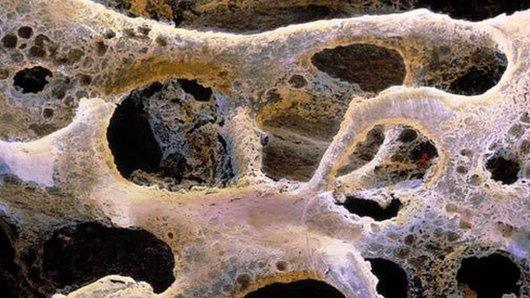Osteoporosis tests 'could save Welsh NHS £4.5m'
- Published
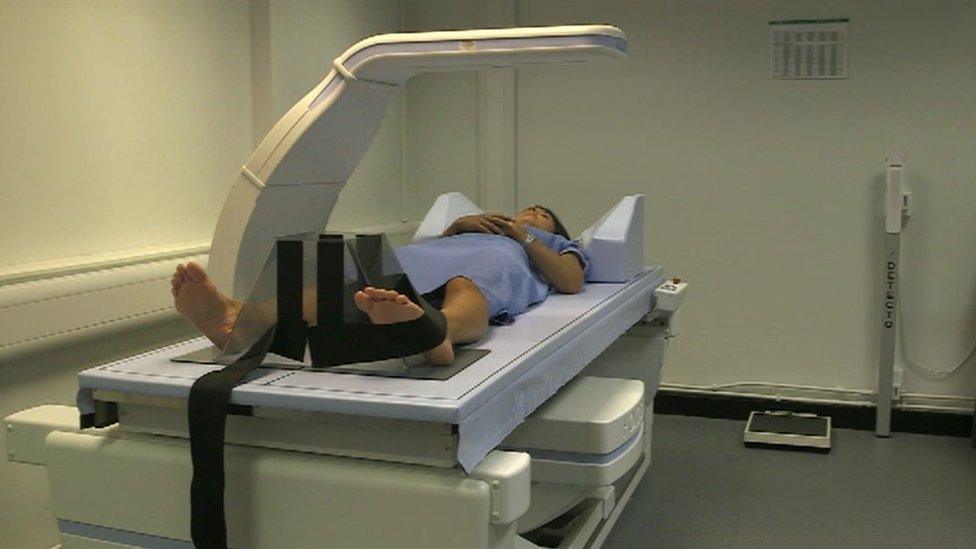
Lucy Owen underwent a scan to find out her bone density for the documentary Middle-aged Me
More services in Wales to help diagnose osteoporosis could save the NHS £4.5m a year, a charity has claimed.
The National Osteoporosis Society is calling for every hospital in Wales to have such a specialist service.
It claims only half of hospitals in the country currently provide fracture liaison services for outpatients.
The Welsh Government said extra funding had been provided for more physiotherapists for a community-based approach to musculoskeletal conditions.
According to the charity one in two women over the age of 50 in Wales will break a bone because of poor bone health, and one in five men.
And, on average, people suffer one to three fractures before they are diagnosed.
Fracture liaison services at hospitals can identify if people who have broken bones have osteoporosis, of if they are at risk of the condition.

Jackie Pile, from Penarth, was diagnosed with osteoporosis six years ago
Jackie Pile, from Penarth, was diagnosed with osteoporosis six years ago and has broken a number of bones in her spine as a result of the condition.
She said: "My back aches if I stand for any length of time and I end up stooping, round shouldered.
"I can't do as much as I used to - I used to be a teacher carrying heavy boxes around. I know I can't do that now."
Ms Pile had a scan because of ongoing back pain and said it was a relief knowing the cause of it. She has lost six inches in height since her diagnosis.
"I'm a bit fed up of being short. I'm used to being 5ft 8in, standing out in a crowd. Now I have to stand on something to look in the mirror," she said.

Dr David Byfield, of the University of South Wales, said: "At the age of 30 you start to lose 1% of your bone each year. You lose 2% of the scaffolding of the bone.
"When you reach menopause that increases by about 10-fold and in the lumbar spine that increases 20-fold, so there's a massive drop in the ability for the bone to sustain itself."
The National Osteoporosis Society said if fracture liaison services were available at all hospitals, it could help diagnose people who have the condition without realising.
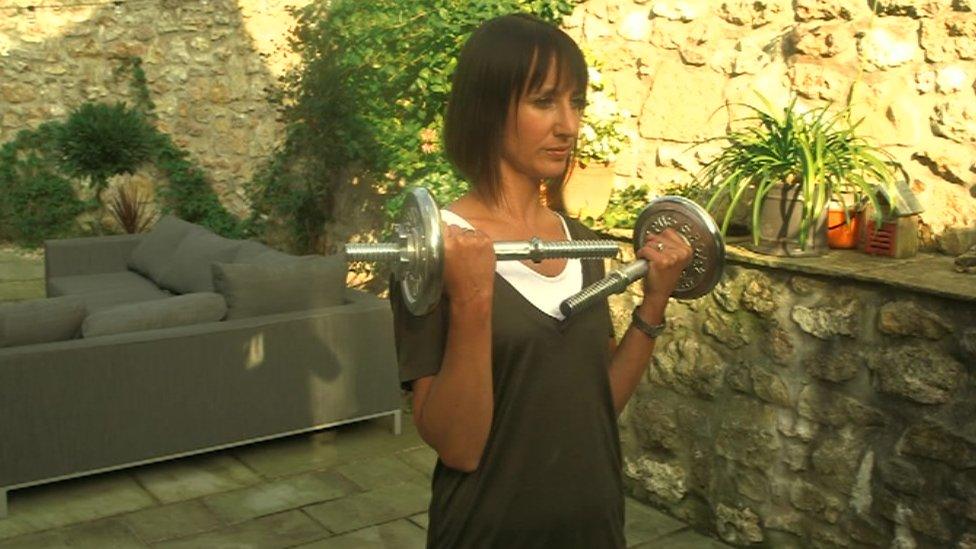
Weight-bearing exercise, more calcium and vitamin D can all help build bone strength
"There's a huge lack of provision in rural areas, particularly looking at parts of mid Wales and that makes a huge difference," said Louise Fox, the charity's development manager for Wales.
"We know these people can't access fracture liaison services so potentially their osteoporosis is going undiagnosed."
The charity said weight-bearing exercise, more calcium and vitamin D - medication if needs be - can all help build bone strength.
And experts say we should all be doing what we can to look after our bones, whatever our age.
A Welsh Government spokesman said: "We have provided additional funding to support extra physiotherapists as part of a community-based approach to dealing with musculoskeletal conditions.
"This is part of a £40m national primary care fund to provide care for people closer to their homes.
"This not only avoids patients waiting to be referred by a GP but enables those who need to be seen in secondary care to be seen more quickly."
Watch Middle-aged Meat 20:30 BST on BBC One Wales, when Lucy Owen will be looking into osteoporosis and other issues including menopause, career changes, going grey and Botox
- Published22 September 2016
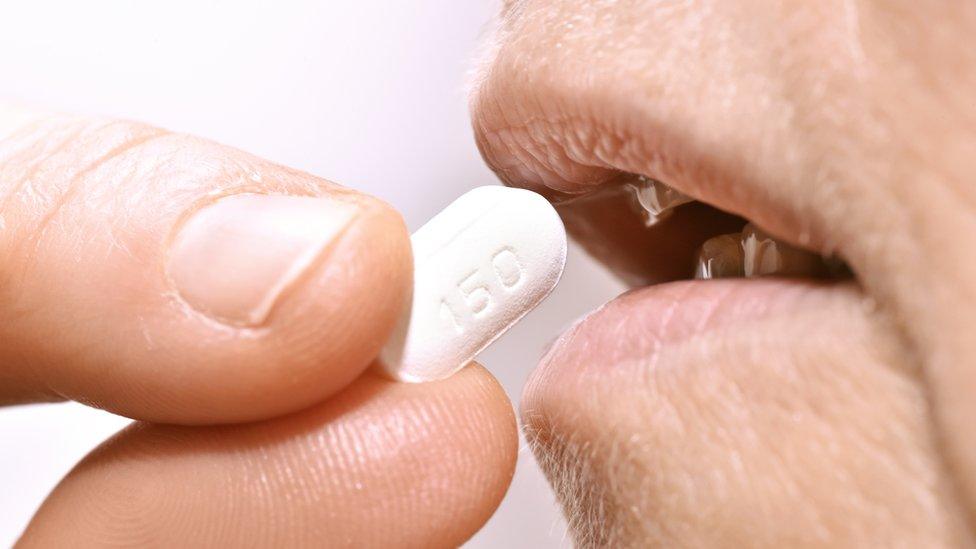
- Published15 October 2013
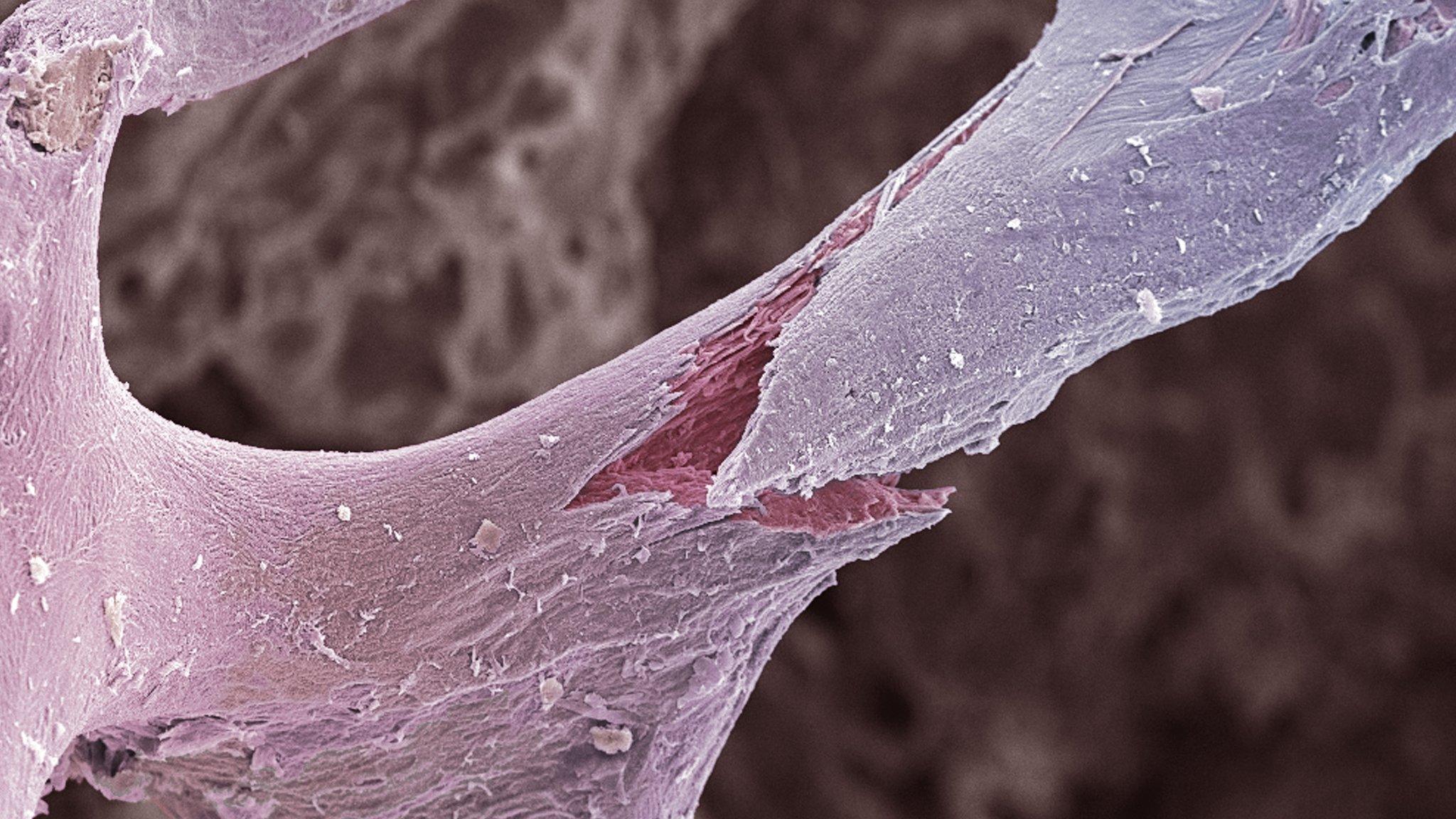
- Published29 May 2012
